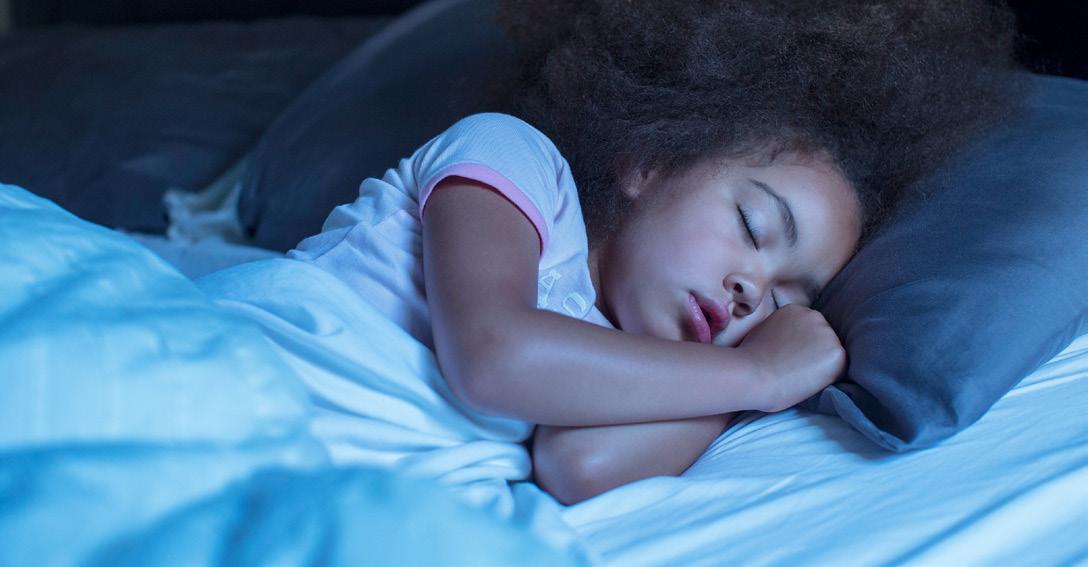
1 minute read
FAMILY HEALTH
Fostering Healthy Sleep Habits
BY PILAR BRADSHAW, M.D., F.A.A.P. EUGENE PEDIATRIC ASSOCIATES
e often hear from parents who have questions about sleep. How much sleep should my child be getting each night? How can I help my child W who’s struggling to fall asleep? Why doesn’t my child stay asleep?
HOW MUCH SLEEP DO KIDS NEED?
Sleep is important for learning and memory, mood regulation, physical growth, and a healthy immune system. How many hours your child needs changes as they grow: • Infants (4-12 months): 12-16 hours, including naps
• Toddlers (1-2 yrs): 11-14 hours, including naps
• Pre-schoolers (3-5 yrs): 10-13 hours, including naps
• Grade-schoolers (6-12 yrs): 9-12 hours
• Teens (13-18 yrs): 8-10 hours
Structure during the day and night is key to healthy sleep. Following consistent times for waking, naps, playtime and studying helps promote better sleep at night. Getting an hour of physical activity each day, preferably outside in the fresh air, also aides in better sleep. Bedtime should also involve a consistent routine:
• Turn off all screens two hours before bed.
• Finish homework at least an hour before going to sleep.
• Take a warm bath or shower to calm your brain.
• Read quietly, then lights out.
Most kids should be able to fall asleep within 30 minutes.

HELPING A TROUBLED SLEEPER
If your child is waking frequently during the night, anxiety or a busy brain may be the cause. Talk to your child about how they are feeling in the night when they are awake. What are they thinking about? If it’s scary thoughts, try writing them down before bed to “put their worries to sleep.” If their problem is that they can’t turn off their busy thoughts, try a more calming and structured bedtime routine. If that doesn’t work, talk with your pediatrician.
Melatonin should not be used as a sleep aid without first talking to your child’s doctor about dosing and duration of treatment. ✦







